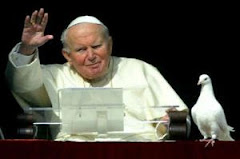
March 17, 2008
Greenberg: the lost art of the apology
by Paul Greenberg
Barack Obama faces a test of character in this unending race for the Democratic presidential nomination: Does he continue to take the high road, saying he aims to unite rather than divide the country, or does he respond in kind when his opponent throws every low thing she can at him?It's not a test Hillary Clinton is likely to face. By now surely no one doubts her ability to plumb the political depths. A veteran of many a political campaign, hers is not the politics of unity but of the war room. To sum up her guiding philosophy: Attack, attack, attack. And one more thing - take no prisoners. She's not about to apologize for some of the stunts her campaign has pulled in this campaign, whether it's distributing a picture of her opponent in Somali dress, accusing him of plagiarism or hubby's trying to dismiss Barack Obama as just another black candidate a la Jesse Jackson.All those tactics backfired, which is the good news. The bad news is that, on the basis of such tactics, her fans continue to praise Clinton femme as a "fighter," even if it's a dirty fighter. For Americans in the Vince Lombardi tradition, it's not how you play the game but whether you win or lose. And of late - see Texas and Ohio - Hillary has had some big wins. And winning means never having to apologize.
It's all in accord with the macho American tradition. "Never apologize," said John Wayne, perhaps the macho American hero. "It's a sign of weakness." Or to quote the title of Jim Belushi's book back in 2006, "Real Men Don't Apologize."To some of us, making a proper apology when we've wronged another, or just screwed up, is a sign of strength, not weakness. It demonstrates an ability to overcome false pride. One of the many lessons I learned - or was supposed to learn - in that graduate school of conduct called the U.S. Army is never, never try to weasel out of a mistake.
The best response when called on the carpet is a simple "No excuse, sir." Not "I'm sorry but ..." or any other attempt to evade responsibility. An honest confession of fault clears the air and doesn't let the wrong fester. It's an effective course in civilian life, too. And, more important, an honorable one.When one of Barack Obama's close advisers, Samantha Power, described Hillary Clinton as a monster who'd stoop to anything to win this election, Power was obliged to resign her post. Fair enough. Accountable enough. A resignation remains the most sincere from of apology in public life. And there aren't nearly enough of them.Note the contrast with Hillary Clinton's reaction when her flack-in-chief, Howard Wolfson, compared Barack Obama to the Clintonistas' idea of a monster - Kenneth Starr, the prosecutor who pursued Bill Clinton in the late unpleasantness known as L'affaire Lewinsky.
Instead of demanding her spokesman's resignation, Sen. Clinton explained that Wolfson wasn't making "an ad hominem attack" but only an "historical reference." And what's more, she agreed with him. As an apology, that's more like another attack.For an example of how to apologize, allow me a little local pride in the Catholic Diocese of Little Rock. It seems the diocese had discouraged support this year for the Susan B. Komen Foundation, which sponsors the Race for the Cure against breast cancer. Why, for heaven's sake? Because of the foundation's supposed ties to Planned Parenthood and abortion providers.
As it turns out, no funds raised by the Race for the Cure in Arkansas are used to finance abortions through Planned Parenthood, and Monsignor J. Gaston Hebert, who currently heads the diocese, minced no words when he apologized for the church's earlier statement:"To let that statement stand would be an act of injustice," said the monsignor. "With apologies to Komen, to those fighting breast cancer and to the survivors, to the Catholic clergy and faithful who were embarrassed by the mistaken policy, I rescind the position statement in its entirety."Now that's an apology. No excuses, no "explanations," no weasel words. Just a cleansing act. Result: Trust is restored. Sherrye McBride of the Komen Foundation in Arkansas responded in kind, saying of the monsignor: "He realized he had made a mistake, and he was a big enough person and a fine enough man to say so." Which is how making a proper apology respects and reconciles all concerned. It's an old rule, mathematical in its elegance: Forgiveness is the reciprocal of repentance.
Here's hoping the monsignor's example spreads far beyond Arkansas. It needs to, for apologizing seems largely a forgotten art in our times. Just how forgotten? Nick Smith, a professor of philosophy at the University of New Hampshire, begins his absorbing new book ("I Was Wrong: The Meanings of Apologies") by noting that the most recent philosophical inquiry devoted to the art and practice of apologies might be Maimonides' treatise "Laws of Repentance," which dates back to circa 1170-1180.







No comments:
Post a Comment